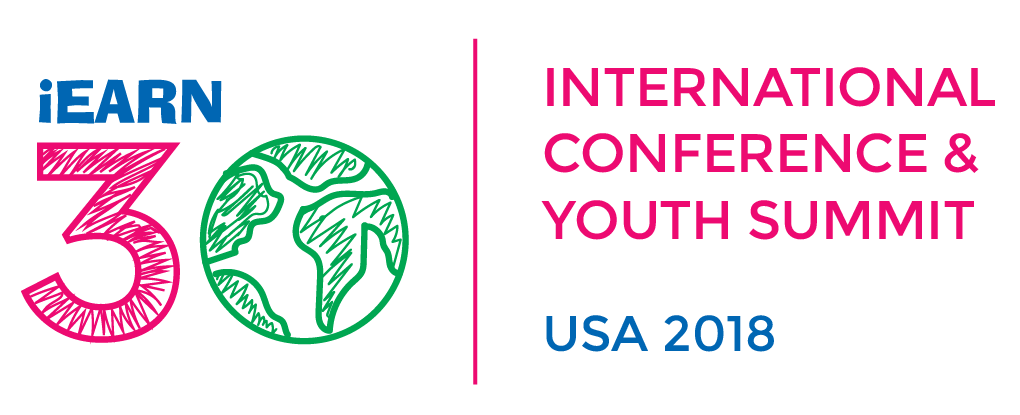Sessions
Coding To Develop Global Competencies at the Youth Summit
Jim Carleton
Simcoe County District School Board
Jim Carleton
Jim has been teaching for 25 years and became incredibly interested in the power of global collaborative learning in 2003 after attending the iEARN International Conference and Youth Summit in Japan. Since that time, Jim has had the pleasure of working with many students and teachers on a variety of different projects both as a classroom teacher and as a technology consultant. Until he became involved in real and meaningful projects, he had no real interest in technology; however, it was as a result of being engaged in iEARN projects that he saw a purpose for the use of these ever growing and emerging tools. Jim is presently a teacher librarian in a school north of Toronto, a role he loves since it affords him the opportunity to collaborate with others.
Mali Bickley
TakingItGlobal
Mali Bickley
Mali Bickley has recently retired. She has 35 years experience as a classroom teacher. Over the past 15 years, she has integrated ICT, literacy, and content area curriculum to have her students connect, communicate, and collaborate with several classes from around the world. As a classroom teacher, Mali is using global education projects to integrate reading and writing strategies into meaningful projects that connect students globally. Mali’s students have successfully collaborated within their classroom and with classrooms around the world to make a difference in the lives of others. Mali is the Educational Collaboration Advisor at TakingITGlobal and designs and facilitates many international projects.
Sunita Bhagwat
New India School
Sunita Bhagwat
Sunita Bhagwat, Country Coordinator of iEARN-India, has run the iEARN center of India since its inception in 2000. She has directed and coordinated international collaborative projects and exchange programs for school teachers and students of Indian schools like CIVICS, BRIDGE, FLAP, Four Rivers One World, NSLI-Y funded by State Department of Education, Washington DC. She has been promoting various projects in Indian schools for international collaboration and global understanding.
She is a Consulting Director at New India School, Pune (www.newindiaschool.org). Under her leadership, the school was recognized in 2014 as Microsoft Innovative School and Partners in Microsoft School Research Program. She has designed and implemented teacher development programs in schools and has carried out action research projects to assess the impact of these programs.
She is theapproved assessor for “Quality School Governance”, Quality Council of India, Consultant for Quality Management Systems, and has successfully designed and implemented QMS for the last 8 years in various schools accross India.
She is a recipient of several state and national scholarships, one of them being the University Grant Commission Junior research fellowship for Ph.D. (5 years). She has guided 34 teachers for action research projects.
She is a hard core teacher and passionate researcher having experience for more than 25 years in school education.
Type: Interactive Workshop
Location: Room 1329
Date: Friday
Time: 9:00-10:20 AM
This session is associated with a UN SDG!
This session relates to the Don't Waste - Create iEARN Project!
Session Description
Coding is a fun and engaging activity that teaches us far more than just how to code. It need not be an isolated, lonely activity done in your parent's basement. Instead, coding can help to develop many of the so called 21st Century skills such as communication, collaboration, critical thinking, creativity, citizenship and character. Of course, like all technology, it depends on how it is taught and how it is used.
In this lab we will briefly look at how students in India and Canada collaborated with one another to design and create objects made from 90% recycled objects that were coded to perform simple tasks. You will then spend the majority of the time working with others to replicate what they did. You will use Micro:Bits (tiny programmable computers) as the brains behind objects that you will create like step counters, games, robots, music players - whatever you can imagine.
You do not require any previous coding skills. This lab will be good for first time as well as experienced coders. Everyone will be successful.
What will youth learn and be able to do at the end of the session?
- To experience how simple coding can be
- To experience how coding fosters creativity, communication, collaboration, and critical thinking/problem solving
- To see how STEM projects and global projects can be tied together
Session Resources
Coding To Develop Global Competencies - Youth Summit PowerPoint
Coding To Develop Global Competencies - Website #1
Adobe's Free Media Creation Tools
Coding To Develop Global Competencies - Website #2
Taking It Global Collaboration space.
Coding To Develop Global Competencies - Website #3
Coding To Develop Global Competencies - Website #4
Scratch - coding site
Coding To Develop Global Competencies - Website #5
Project page for MicroBits
Coding To Develop Global Competencies - Website #6
Hour Of Code - https://hourofcode.com
Coding To Develop Global Competencies - Website #7
Make Code Microbit - Site for coding MicroBits
Coding To Develop Global Competencies - Website #8
Code.org - Site containing numerous resources for coding K-12.
Coding For Developing Global Competencies - Website #9
The Foos - Coding for primary aged students
Coding To Develop Global Competencies - YouTube Video
Youtube Video for Hour of Code

